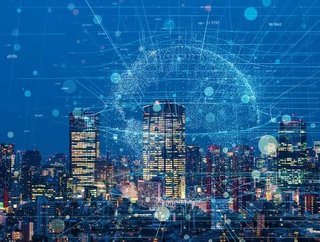Cognitive Computing, Blockchain and IoT are revolutionising the digital supply chain

Was 2017 a turning point in the race for adoption of the digital supply chain, a race driven by powerful emerging technologies just coming into widespread use? UPS VP of corporate strategy Alan Amling says yes, pointing out that whether you call it supply-chain digitisation, the Internet of Things or “Industry 4.0,” you’ll need a transformed supply chain powered by AI, Big Data and the brains to leverage connected devices and assets into actionable insights. Without these tools, your horse is in danger of being left behind.
Disruption, that mantra of entrepreneurs everywhere, is more like a curse word among supply-chain pros. The irony, of course, is that transforming the digital supply chain both disrupts it and, in the long term, protects it from far worse disruptions ahead. The technologies driving transformation include the blockchain, chatbots and digitisation, all affecting how more and more companies integrate data, interact with customers and build winning strategies. The payoff is a faster supply chain with better quality and service that avoids failures and may uncover untapped potential, Amling says. IDC agrees, projecting that “digitally mature" companies will scoop up $430bn more in productivity gains by 2020 compared to late adopters.
The Big Data ecosystem is the foundation of digital transformation. It begins with widely-deployed sensors transmitting data through the Internet of Things to a cognitive computing platform. Such a platform makes sense of all that information, providing company leaders the insights they need to effectively run their operations.
Blockchain – all over the news these days with the rise of cryptocurrencies – will both inform the digital supply chain and further drive its transformation. Michael J. Casey, chair of Coindesk’s board of advisors, lists a string of related technologies with equally big supply-chain implications, including machine learning, mobile money, digital identity and 3D printing. All, he warned, are “poised to seriously disrupt" the supply chain. He’s right.
Three Technologies Transforming the Digital Supply Chain
The race to digitise the supply chain is well underway, whipped along by a slew of technologies, most particularly these three:
Blockchain. The technology underlying cryptocurrencies isn’t stopping at fintech. It will almost certainly transform many sectors and industries, not least tracking a company’s goods from original sources through sale to ultimate disposal. Failing to plan and incorporate blockchain functions into your business processes could, for many companies, even be fatal, CoinDeaks’ Michael Casey argues. Incorporating blockchain won’t be easy, despite its game-changing promise, however. Pulling together the many players in your supply chain to jointly create a multi-node computer network that can run a distributed blockchain ledger can be painful.
And in many cases, intelligently-deployed database tools can fix problems such as tracking inventory. For many companies, that simple short-term solution means “you’d be insane to use a blockchain,” says Gideon Greenspan, CEO of Coin Sciences. What’s not insane, however, is the much larger long-term benefits of creating a blockchain-based system that creates a “more dynamic, flexible and customer-responsive” supply chain, Casey said. With “trustless” systems built on blockchain, geography and relationships matter less, which means you should create the most open, permission-free model you can handle. The flexibility, speed and power that results can vastly improve your business processes.
SEE ALSO:
-
Industry consortium successfully tests "revolutionary" Accenture blockchain solution
-
DHL and Accenture working on blockchain-based pharma supply chain project
-
Five predictions about what procurement will look like in 2025
Internet of Things. IoT is at the heart of the digital supply chain. Its early-stage technologies have already benefited companies in nearly every industry with increased productivity of as much as 15%, according to IDC and SAP. IoT-based technologies can measure inventory, track shipments, optimise routes, ensure product quality and even predict and prevent problems.
Cognitive Computing. The distributed sensors of IoT depend on powerful new brains to fully realise their potential. Already, 71% of companies are collecting data from IoT devices, anticipating future initiatives. The challenge is weeding through all that data to find the actionable intelligence that decision makers need. That’s where the embedded advanced analytics and data-crunching power of cognitive-computing platforms can really push intelligence into the supply chain, accomplishing the “nearly impossible.” At the same time, the long-held dictum of “garbage in, garbage out” remains as pertinent as ever. All that data, from all those systems, has to be harmonised and indexed before it can be processed into something useful. A cognitive computing platform functions as the conductor orchestrating all this data into a harmonious whole.
Summary
What makes a company among the best in its class is superior visibility into its supply chain, with real-time access to data and the insights that come from it. The best companies are already reshaping their processes using the technologies discussed here (and others to come). For. the best-in-class leaders, 2017 is the year they made the turn into a fully empowered digital supply chain and have headed down the stretch. For everyone else, lots of work must be done to catch up, and soon. The race is already well underway.
About The Author
Stephen DeAngelis is a technology and supply chain sector entrepreneur and patent holder with more than 25 years of experience in building, financing and operating technology and manufacturing companies. DeAngelis is President and CEO of Enterra Solutions, a cognitive computing firm focused on next-generation big data-enabled predictive analytics and insights for Fortune 100 companies and government agencies in the Consumer Products/Retail, Pharmaceutical, Chemical and National Security industries.






